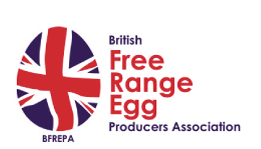The UK market is still focused, unsurprisingly, on Brexit. Despite a new revised proposal passing through Parliament, we fear it will be more difficult to achieve the same result in the EU Parliament.
Wheat prices have traded almost sideways during the week, with the May wheat futures position ending at £173.60 nearly unchanged over the week. Currency traded down, but is still in a comparatively strong position on recent levels at 1.3 against the $. Traded volumes of wheat are low both in the UK and generally. With the lack of any new, or more definite news, the trade is adopting a ‘wait and see’ approach.
The price of Russian wheat has increased to a point that it was no longer competitive on the export market. This came shortly after the Russian agricultural ministry reduced its export predictions for wheat by 1 Mln T to 37 Mln T, although the total grain export figure remains at 42 Mln T. This was seen by the trade as a key turning point in Russia’s dominance of the wheat export market for the rest of this season. This gave other counties exporting wheat an opportunity (at last) to see some export action, and it was France that succeeded with an Egyptian tender. Despite this success the French market still traded sideways this week. US wheat export statistics remain disappointing for US farmers and traders, as they are down 10% on last year. US wheat traded down $3 for most of the week, yet finished on a rise back to where the week started. In US agricultural circles there is some optimism over the current round of trade discussions between the US and China, and the fact that the US government is back returning to normal working, although the lack of data remains a challenge. The long delayed report expected on the 8th Feb will be an interesting read for the trade. USDA FAS and CFTC have said that the missing data will be released in weekly batches. USDA statistics released this week used data from mid-December and so were considered out of date to the trade.
US Soya bean prices were slightly down this week. Many farmers in Brazil are reported to be reducing or stopping sales of the current crop. An estimated 50% of Brazilian production has already been sold, in part encouraged by the increased trade with China. Brazilian farmers are waiting for the price to improve again as the dry spell in December may potentially have reduced the production potential for some. However there is equally feeling that the losses will not be great enough to balance the overwhelmingly large global stock figures when the US carry and Argentine crop are considered.
Are you as cool as a cucumber? Or do you find life stressful? It turns out, that your stress may not be all your fault.
Scientists at Penn State have found that a family history with frequent exposure to a stressor can improve the immune response of future generations.
The work, involving fence lizards, (Sceloporus undulates) found that lizards whose ancestors lived in a high stress environments, in this case repeated fire ant attacks, had a more robust immune system in times of stress when compared to those whose previous generations lived low-stress lives. Fire Ants stings can break the lizards skin and leave them venerable to infection and even be fatal. Lizards from an area shared with fire ants up to 70 years earlier, equivalent to 30-40 lizard generations, were found to have an improved immune response which may have helped ensure they survived. This response was true for both exposure to fire ants and to doses of the stress hormone corticosterone dissolved in oil. They also noted that the lizards’ behaviour had also adapted. Previously they were known to freeze and use camouflage to avoid preditors, but as this is ineffective with ants, they had developed a `twich and run’ approach.
With similar studies on other animals it is hope the link will also be found to be true for humans. So, if you are known for being good in a stressful situation, you might want to take any older relatives out for a meal or book them a spa day as the chances are they have had some stressful times to give you that `cool’ in a crisis outlook.
Brought to you by Paul Poornan, Melanie Blake and Martin Humphrey.




















